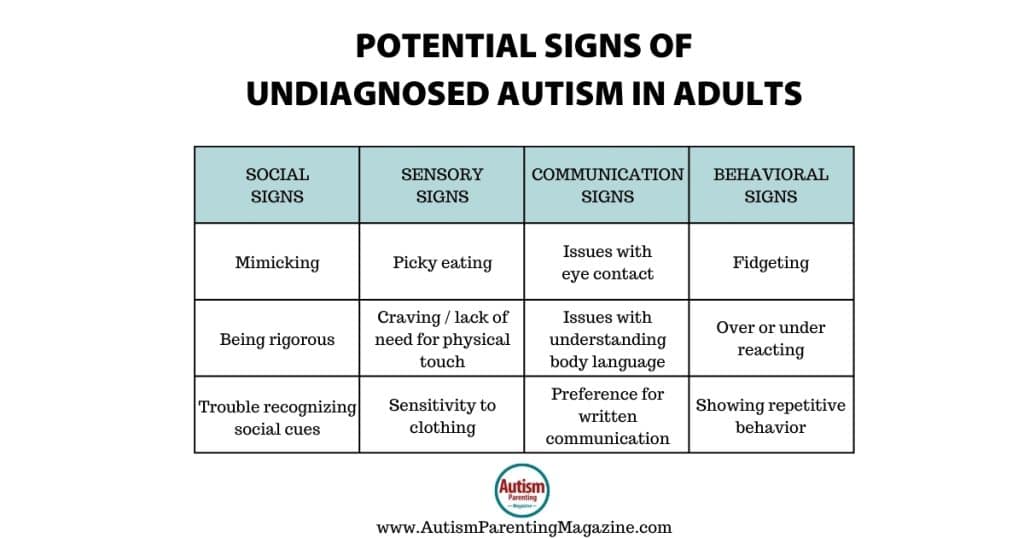Ways to recognize early communication signs and seek help from an Aba Therapist
Ways to recognize early communication signs and seek help from an Aba Therapist
Blog Article
Key Symptoms And Signs to Recognize in People With Behavioral Autism
When you experience somebody with behavioral autism, recognizing key indications and signs and symptoms is vital. In addition, sensory sensitivities can lead to overwhelming experiences.
Challenges in Social Interactions
When you engage with somebody on the autism spectrum, you might notice they have problem with social cues and communication. These obstacles can make social communications feel overwhelming for them. You might see them avoiding eye get in touch with or standing as well close or too far during conversations, which can produce misunderstandings. They may not select up on body language or facial expressions, making it harder for them to gauge just how others are feeling.
When they do engage, they may speak about their passions in terrific detail without noticing if you're interested. Recognizing these challenges can help you approach interactions with compassion and patience, fostering a more comfy setting for both of you.
Problem With Verbal and Non-Verbal Interaction

Non-verbal communication can be a lot more tough. You could see a lack of eye contact or limited use motions, which can make interactions really feel unpleasant. Face expressions may not constantly straighten with the discussion, resulting in confusion regarding their sensations. Identifying these indicators is important, as it aids you better support and engage with people on the autism range. By comprehending their interaction obstacles, you can promote much more purposeful connections and provide a much more helpful atmosphere.
Repeated Actions and Regimens
Communication obstacles frequently accompany various other indicators of autism, such as repetitive habits and a solid preference for routines. You might observe that people with autism usually take part in specific, repeated activities, like hand-flapping, rocking, or duplicating expressions. These behaviors can supply comfort and a sense of control in a frequently overwhelming world.
Regimens are just as crucial; many individuals thrive when they comply with an organized schedule. You might find that adjustments to these routines can cause considerable distress. For instance, if they have an everyday ritual of consuming morning meal at a details time or adhering to a particular path to college, any disruption can cause anxiousness.
Recognizing these patterns assists you comprehend their actions and supply assistance. By suiting their demand for routine and allowing repetitive actions, you can produce an extra comfortable environment that eases their difficulties.
Sensory Sensitivities

Common Sensory Triggers
Sensory level of sensitivities can substantially influence day-to-day life for people with autism, as certain stimulations commonly activate frustrating responses. Usual sensory triggers consist of loud sounds, bright lights, and solid scents. Recognizing these triggers can aid you handle your setting much better.
Behavioral Reactions Described
Understanding your behavior actions to sensory sensitivities is crucial, as they usually expose how you connect with the world. You may discover that certain audios, lights, or structures bewilder you, resulting in anxiety or pain. When confronted with these stimulations, you may withdraw, cover your ears, or perhaps react strongly. These reactions aren't simply peculiarities; they're your way of handling overstimulation. You might likewise locate yourself looking for details sensory experiences, like deep stress or quiet atmospheres, to help ground on your own. Identifying these patterns helps you recognize your requirements far better and can assist how you communicate them to others. By acknowledging your sensory sensitivities, you can work towards producing an atmosphere that feels more comfy and manageable for you.
Coping Strategies Summary
Identifying your sensory level of sensitivities is just the initial step; now it's time to discover coping methods that can assist you manage those experiences successfully. Start by developing a sensory toolkit customized to your needs. Establishing an organized routine can additionally supply predictability, reducing anxiousness around sensory overload.
Restricted Passions and Focus
While numerous individuals create a large range of passions, those with autism typically demonstrate limited passions and an extreme emphasis on certain topics. You could observe that someone with autism can invest hours delving right into their favored subject, whether it's a certain sort of train, a details flick, or a scientific principle. This intense focus isn't simply a leisure activity; it can end up being a main component of their identity and social communications.
You may locate that conversations rotate around these passions, and they might battle to involve in wider topics. By comprehending and acknowledging these restricted interests, you can cultivate a supportive setting where they really feel valued and click to read understood, enabling for more significant links and interactions.
Emotional Policy Difficulties
People with autism commonly face obstacles in emotional law, which can be influenced by their extreme concentrate on particular passions. You might observe that when a person is deeply participated in a recommended activity, they can experience strong feelings, whether exhilaration or aggravation. This strength sometimes makes it difficult for them to change gears or handle their feelings when things don't go as intended.

Variability in Developing Landmarks
When it pertains to developing milestones, you'll discover that individuals with autism often reveal a wide variety of irregularity. over here Some might hit landmarks on schedule, while others may drag or progression at a various rate. As an example, you may see a kid stand out in language abilities however deal with social communications. This disparity can be complicated, as standard standards do not always apply.
It's essential to recognize that each person's trip is special. Some might create complex abilities early, only to deal with difficulties later on. Others might take longer to achieve standard landmarks however then flourish in specific locations. Observing these patterns can aid you recognize their toughness and requires better.
Regularly Asked Questions
Just How Is Autism Detected in Children and Adults?
To diagnose autism in children and grownups, professionals review habits, communication skills, and social communications. They usually utilize standardized examinations, interviews, and monitorings to identify if an individual fulfills the requirements for autism range condition.
Exist Different Kinds Of Autism Spectrum Disorders?
Yes, there are various kinds of autism range disorders, consisting of Asperger's syndrome and prevalent developing disorder-not otherwise defined. Each type varies in seriousness and characteristics, so comprehending these distinctions can assist you far better support people with autism.
What Therapies Work for People With Autism?
When taking into consideration reliable treatments for people with autism, you'll discover options like Applied Habits Analysis, speech treatment, and work treatment. Each approach can assist boost communication, social abilities, and day-to-day operating tailored to private requirements.
Can Individuals With Autism Lead Independent Lives?
Yes, individuals with autism can lead independent lives. With the appropriate assistance, skills training, and sources, discover here you can help them establish self-sufficiency, handle day-to-day jobs, and thrive in numerous environments, promoting their self-reliance.
Just How Can Families Support Loved Ones With Autism?
You can sustain your loved ones with autism by producing a structured atmosphere, urging their passions, practicing perseverance, promoting communication, and advertising social abilities. Commemorate their success, despite just how tiny, and construct an encouraging area.
Although several individuals on the autism spectrum can utilize and comprehend language, they often face considerable obstacles with both non-verbal and spoken communication. Acknowledging these indications is necessary, as it assists you much better support and involve with people on the autism range. You could observe that individuals with autism typically engage in details, repeated activities, like hand-flapping, shaking, or duplicating expressions.Sensory sensitivities can significantly impact daily life for people with autism, as specific stimuli typically activate overwhelming reactions.When it comes to developing turning points, you'll discover that individuals with autism often reveal a vast variety of variability.
Report this page